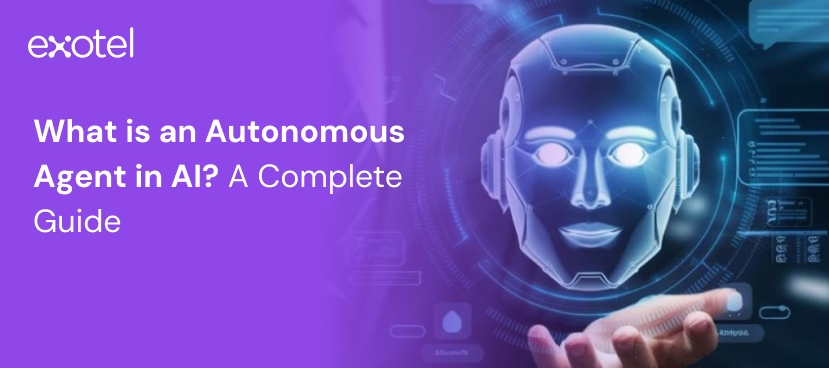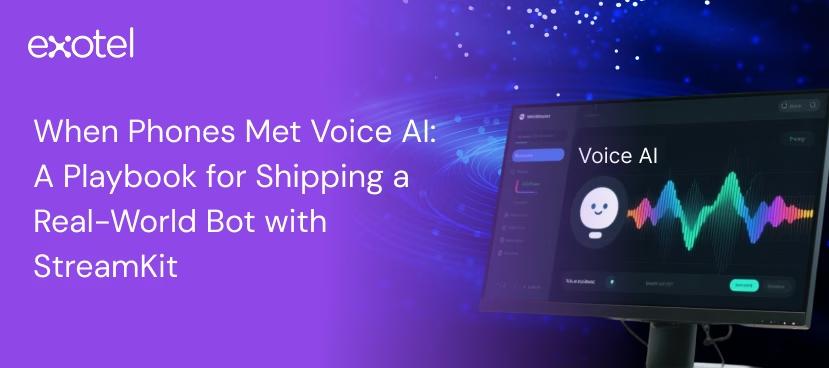Artificial Intelligence (AI) continues to reshape the way businesses operate, from automating routine tasks to enhancing customer experiences. Among its many innovations, autonomous agents in AI have emerged as powerful tools capable of performing complex tasks independently. But what exactly are these agents, how do they work, and why are they increasingly critical in today’s digital landscape? This blog provides a comprehensive overview.
What is an Autonomous Agent in AI?
An autonomous agent in AI is a software entity capable of making independent decisions and taking actions to achieve specific objectives. Unlike traditional programs that rely on explicit human instructions, autonomous agents can perceive their environment, analyse situations, plan actions, and adapt dynamically without constant supervision.
In simpler terms, an autonomous agent behaves like a virtual decision-maker that can operate independently within a defined environment, much like a human agent would, but powered by artificial intelligence.
Key Characteristics of Autonomous Agents
Understanding the characteristic of autonomous agents helps distinguish them from regular AI systems or automated scripts. Here are the key characteristics:
- Autonomy: The agent operates without constant human intervention, making decisions based on its understanding of the environment.
- Perception: It gathers data from its surroundings, such as user inputs, system states, or real-time metrics.
- Decision-making: The agent processes information, evaluates alternatives, and decides on the best course of action.
- Adaptability: It learns from past experiences, continuously refining its decision-making strategies.
- Goal-Oriented: Autonomous agents are designed to achieve specific objectives efficiently, whether completing a task or optimizing a workflow.
How Do Autonomous Agents Work?
Autonomous agents operate by integrating several AI capabilities, including machine learning, natural language processing (NLP), and reinforcement learning. The typical workflow involves:
- Sensing the Environment: The agent collects data from various sources, such as customer interactions, system logs, or external APIs.
- Processing Information: Using AI models, it interprets the data to understand the current context or problem.
- Planning Actions: Based on the analysis, the agent identifies possible actions to achieve its goals.
- Actions: The agent executes actions autonomously, like sending messages, updating databases, or initiating calls.
- Learning and Adapting: After completing tasks, the agent evaluates outcomes, learns from successes and failures, and improves future performance.
This cyclical process allows autonomous agents to continuously evolve and become more efficient over time, providing more intelligent and proactive solutions.
Types of Autonomous Agents
Autonomous agents can be categorised based on their functionality and environment. Here are the common types:
- Reactive Agents: Respond immediately to environmental changes without storing past experiences. Ideal for simple, real-time tasks.
- Deliberative Agents: Plan actions based on a model of the environment and long-term objectives, suitable for strategic decision-making.
- Hybrid Agents: Combine reactive and deliberative approaches for balanced responsiveness and planning.
- Multi-Agent Systems: Multiple agents collaborate or compete to achieve complex tasks, often used in simulations, robotics, and logistics.
Use Cases of Autonomous Agents in Business and Customer Experience
Autonomous agents are revolutionising multiple industries by enabling faster decision-making, operational efficiency, and enhanced customer engagement. Some notable use cases include:
1. Customer Support Automation
Autonomous agents can handle customer queries via chat, email, or voice calls, providing instant responses 24/7. They analyze customer intent, suggest solutions, and escalate issues when necessary, freeing human agents for more complex interactions.
2. Sales and Lead Management
In sales, autonomous agents can qualify leads, schedule meetings, and follow up automatically, ensuring timely engagement and improved conversion rates.
3. Process Optimisation
Businesses use autonomous agents to monitor workflows, detect bottlenecks, and optimize operations in real-time, reducing costs and improving efficiency.
4. Financial Services
Autonomous agents in banking and insurance can detect fraudulent transactions, recommend investments, or automate claims processing, minimising errors and accelerating service delivery.
5. E-commerce and Marketing
Agents analyse customer behavior, personalize recommendations, and automate marketing campaigns, resulting in higher engagement and revenue.
Why Autonomous Agents Matter in AI
The importance of autonomous agents lies in their ability to scale human-like decision-making across operations while maintaining consistency, accuracy, and efficiency. Key benefits include:
- Increased Productivity: Automates repetitive tasks, allowing human resources to focus on strategic initiatives.
- Faster Decision-Making: Processes large volumes of data quickly to provide actionable insights.
- 24/7 Operations: Enables continuous engagement and support without downtime.
- Cost Efficiency: Reduces operational costs by minimizing manual intervention.
- Enhanced Customer Experience: Delivers faster, personalized, and consistent interactions.
For organizations looking to remain competitive, leveraging autonomous agents is no longer optional—it’s essential for achieving operational excellence and superior customer experiences.
Challenges in Implementing Autonomous Agents
While autonomous agents offer numerous advantages, organizations may face challenges such as:
- Data Quality and Availability: Agents rely on accurate and comprehensive data to make decisions.
- Complexity of Integration: Seamless integration with existing systems and workflows can be challenging.
- Ethical and Compliance Concerns: Autonomous decisions must align with legal regulations and ethical guidelines.
- Monitoring and Governance: Continuous oversight is necessary to ensure agents act as intended and avoid unintended consequences.
Addressing these challenges requires careful planning, robust AI models, and clear operational protocols.
Conclusion
Autonomous agents in AI represent a transformative leap in automation and decision-making capabilities. By combining perception, reasoning, learning, and adaptability, they enable businesses to operate more efficiently while enhancing customer experience. From customer support to sales automation, process optimization, and personalized marketing, the potential applications are vast and growing.
Investing in autonomous agents today positions businesses for long-term efficiency, smarter decision-making, and improved customer engagement, paving the way for the future of AI-powered operations.





